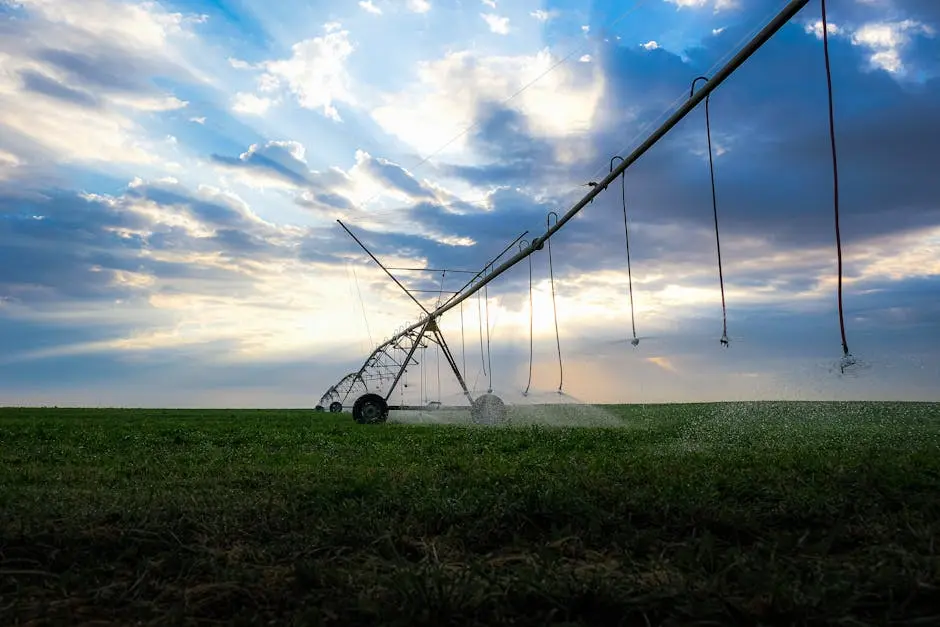In recent years, agricultural spraying services have emerged as a game-changer in the farming industry. These services offer a modern approach to crop management, enhancing efficiency and boosting productivity. In this blog, we’ll explore how these services are transforming the farming landscape.
What Are Agricultural Spraying Services?
Agricultural spraying services utilize advanced technology to apply fertilizers, herbicides, and pesticides efficiently. These services are carried out using machinery and drones, ensuring precise application and minimizing waste.
The versatility of these services extends far beyond what many might initially perceive. By harnessing precision-based machinery, farmers can tackle specific weed or pest issues with pinpoint accuracy. This targeted approach not only reduces the amount of chemicals used but also ensures that crops receive the correct dosage of nutrients, fostering better growth and resilience. Moreover, the integration of sensors and data-driven software allows for real-time monitoring and adjustments, making farming more adaptive and responsive to changing environmental conditions.
In addition, agricultural spraying services can dramatically enhance the consistency of crop treatment. Traditional methods often result in uneven application, which can lead to inconsistent crop quality and yield discrepancies. By contrast, the use of drones and other precision technologies ensures that every plant receives an equal amount of care, promoting uniformity in crop development and quality.
The Role of Technology in Modern Farming
With the integration of cutting-edge technology, spraying services ensure minimal environmental impact while maximizing crop yield. GPS-guided systems and drones allow for precise targeting, reducing overlap and chemical usage.
Technology has become the beating heart of modern agriculture, transforming age-old farming practices into highly sophisticated processes. The precision of GPS-guided systems creates a blueprint for efficient application, optimizing resource use down to the last drop of fertilizer or pesticide. Meanwhile, drones provide a bird’s eye view of the fields; they are able to detect stress signs in plants long before they are visible to the human eye, ensuring timely interventions. The combination of these tools not only boosts yield but also conserves precious environmental resources by minimizing waste.
Moreover, digital platforms and mobile applications allow farmers to control operations remotely, further increasing the scalability of modern farming practices. These platforms offer predictive analytics based on weather data, further refining application timing and enhancing productivity. As technology continues to evolve, the potential for even more holistic and efficient farming methods becomes more probable, which can enormously increase global food production.
Benefits of Agricultural Spraying Services
These services offer numerous advantages, including increased efficiency, reduced labor costs, and better pest and weed control. This results in healthier crops and higher returns for farmers.
One of the notable benefits of agricultural spraying services is their contribution to reducing labor costs. Automation of spraying tasks means that farmers can allocate fewer resources to manual application, often a labor-intensive process. This is particularly beneficial as it allows for the reallocation of labor toward other critical farm operations, thereby optimizing overall farm management.
Additionally, the application of pesticides and fertilizers through these services ensures a more uniform spread across fields. This uniformity helps prevent the common pitfalls of under or over-application, both of which can be detrimental to crop health. Consistent treatment results in healthier plants, leading to increased resilience against common agricultural challenges such as poor weather conditions or pest infestations, and ultimately leading to greater crop yield and profitability.
Sustainability and Environmental Considerations
Sustainability is a critical aspect of agriculture today. Spraying services help minimize chemical runoff and reduce the carbon footprint, aligning with environmentally conscious farming practices.
By enhancing precision in chemical application, agricultural spraying services significantly minimize chemical runoff into water bodies, which is a major contributor to environmental degradation. Accurate sprinkling means that fertilizers and pesticides stay where they are needed, safeguarding local ecosystems and biodiversity from contamination.
These services also contribute to reduced carbon emissions through optimized fuel consumption. Automated operations often require fewer trips across fields, translating to lower fuel usage and, consequently, a smaller carbon footprint compared to traditional farming practices. Furthermore, drone technology, which often operates on electric power, can offer a zero-emission alternative to tractor-based spray units, aligning with global sustainability goals.
Challenges and Future Prospects
While the benefits are clear, there are challenges to address, such as the cost of technology and training. However, as technology advances, these services will become more accessible, paving the way for smarter and more sustainable farming practices.
Initial investment costs for adopting spraying technologies can be significant, posing a barrier for smaller farms with limited budgets. Training personnel to adeptly use these technologies is another layer of complexity that can be time-consuming and expensive. Despite these hurdles, the long-term cost savings and productivity gains are driving growing adoption rates. As more farmers begin to witness these benefits, the demand for spraying services is expected to soar, leading to more competitive pricing and increased access to technology.
Looking ahead, the potential of agricultural spraying services is boundless. Continuous innovation is likely to introduce more user-friendly and cost-effective solutions, accelerating adoption across all scales of farming. As these technologies become more ingrained in everyday agricultural operations, they will undoubtedly drive the next wave of agricultural sophistication, heralding an era of precise, efficient, and sustainable farming practices.
Embracing the Future of Farming
As the demand for efficient and sustainable agriculture continues to grow, agricultural spraying services will play an increasingly vital role in shaping the future of farming. Embracing these technologies not only improves farm productivity but also contributes to a more sustainable and environmentally friendly approach to agriculture. The future of farming is here, and it’s exciting.



